#(aka my maternal grandfather's first cousin is his father)
Explore tagged Tumblr posts
Text
Russian Fairy Tales Unit 3 Review: The Russian Revolution & the Assassination of the Romanov Family

Tsar Nicholas II (1868-1918)
- primarily of German & Danish descent; his last ethnically Russian ancestor was Grand Duchess Anna Petrovna (1708-1728), daughter of Peter the Great. - related to several monarchs in Europe: Kings Frederick VIII of Denmark & George I of Greece were his maternal uncles and Queen Alexandra of the UK was his maternal aunt. His first cousins included King George V of the UK, King Haakon VII and Queen Maud of Norway, King Christian X of Denmark, and King Constantine I of Greece. - Nicholas and his wife Alexandra were both second cousins (through descent from Louis II, Grand Duke of Hesse and his wife Princess Wilhelmine of Baden) *and* third cousins once removed (they were both descendants of King Frederick William II of Prussia). 1881: Nikki was 13 years old when his grandfather was assassinated in a pretty nasty carriage bombing, which he witnessed. This made his father Tsar Alexander III and made him the heir apparent. 1884: Nikki’s coming-of-age ceremony is held at the Winter Palace. Later that year, his uncle Grand Duke Sergei married Princess Elizabeth of Hesse and by Rhine. At the wedding, the Tsarevich met and admired the bride’s younger sister, Alix. Those feelings of admiration blossomed into love following her visit to St. Petersburg five years later (1889). 1890: Nikki goes on a “Grand Tour” with his younger brother George and their cousin, Prince George of Greece (Grand Duke George fell ill halfway through and got sent home). They visited Egypt, India, Singapore, Thailand, receiving honors as distinguished guests in each country. In Japan, Nicholas had a large dragon tattooed on his right forearm by Japanese tattoo artist Hori Chyo. It was during this trip that one of his Japanese escorts, Tsuda Sanzo, tried to assassinate Nikki with a sabre. He was left with a 9 cm forehead scar, but no life-threatening injuries. The “Otsu incident” as it is known *did* cut the trip short.
- Nikki’s father failed to prepare him for his role as Tsar, arguing that he was not mature enough to take on serious responsibilities: “Nikki is a good boy, but he has a poet’s soul...God help him!” - Alexander assumed that he would live a long life and had plenty of time to prepare his son; there was no need to start right away.
1894: Nikki joins his Uncle Sergei & Aunt Elizabeth on a journey to Coburg, Germany for the wedding of Alix & Elizabeth’s brother Ernest Louis, Grand Duke of Hesse, to their mutual first cousin Princess Victoria Melita of Saxe-Coburg and Gotha. During this trip, Nikki proposes to Alix, but she rejects his proposal because she is reluctant to convert from Lutheranism to Russian Orthodoxy. When the Kaiser informed Alix it was her duty to marry Nikki & convert, she accepted, and they became officially engaged on April 20, 1894. Nikki’s parents had not been too impressed with Alix, but since Tsar Alexander’s health had begun to decline, they agreed to the marriage. In early November, Tsar Alexander III died at the age of 49, leaving 26 yr old Nicholas as Emperor of Russia. That evening, Nicholas was consecrated by his father’s priest as Nicholas II and the following day, Alix was received into the Russian Orthodox Church, taking the name Alexandra Feodorovna.
Nicholas chose to maintain the conservative policies favored by his father throughout his reign. While Alexander III had concentrated on the formulation of general policy, Nicholas devoted much more attention to the details of administration. Too bad this attention to detail didn’t keep him from making a series of TERRIBLE mistakes, starting from day one.

1. The Khodynka Tragedy (AKA “Dear Diary, My Coronation Day Has A Body Count)

2. Letting Jesus Take the Wheel
Nicholas believed that God chose him to be Tsar and therefore his decisions reflected the will of God and could not be disputed. This belief made him a very stubborn ruler who rejected constitutional limits on his power. It put him into conflict with the emerging political consensus among the Russian elite. It also created distrust between the Church hierarchy and the Tsar, when the Church *should* have been a reliable base for him.
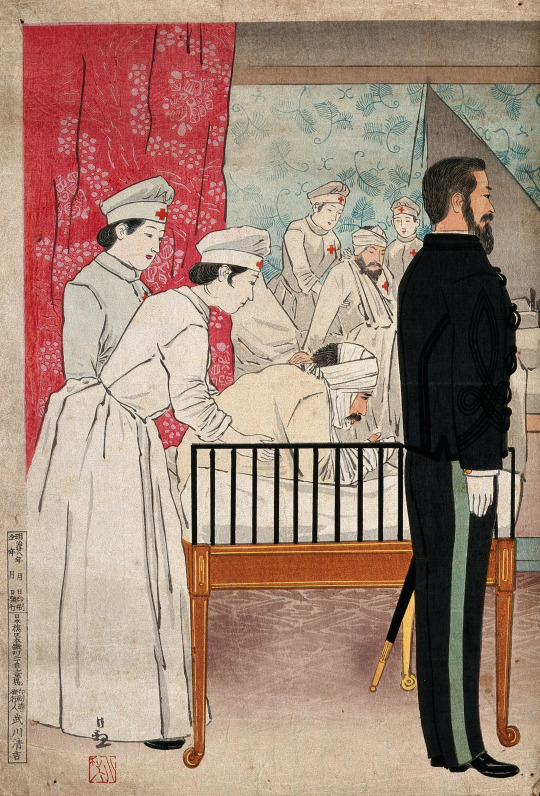
3. The Russo-Japanese War
In fairness, the war itself was probably inevitable. What was NOT inevitable was Nikki’s bias against the Japanese as “small of stature, feminine, weak, and inferior.” This insistence that the Japanese were racially inferior and had a weak military prevented Nikki from seeing the obvious: Japan was absolutely destroying his navy. He had to begged by multiple advisors and relatives to pursue peace and even then, he was so reluctant to make concessions that his minister Witte had to go behind his back to end the war.
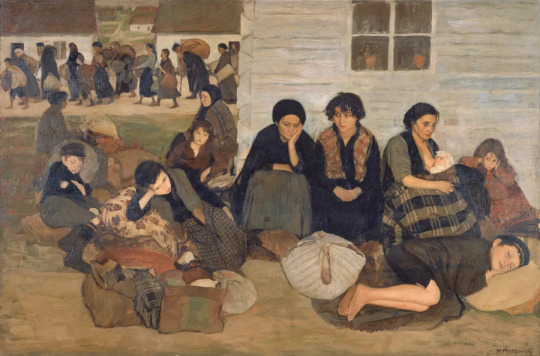
4. Anti-Jewish Pogroms
Publicly condemned, privately condoned, these pogroms killed thousands of Russian Jews. After the brave action of Jewish revolutionary Dmitry Bogrov, who assassinated Pyotr Stolypin in 1911, Nicholas relented and got the government to stop persecuting Jewish citizens.
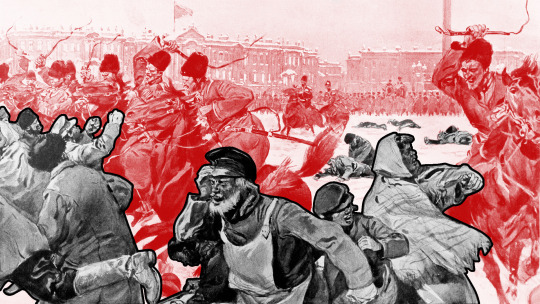
5. Bloody Sunday
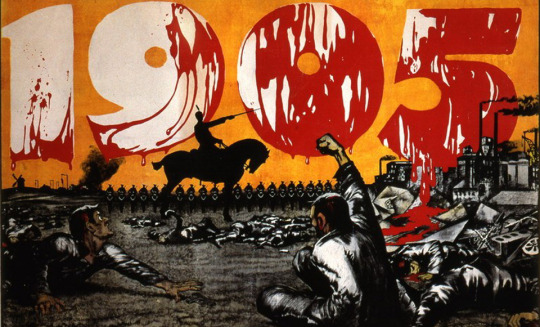
6. 1905 Revolution
Around August/September, after his diplomatic success in ending the Russo-Japanese War, Witte wrote to the Tsar stressing the urgent need for political reforms at home. With the defeat of Russia by a non-Western power, the prestige and authority of the autocratic regime fell significantly. The Tsar remained impassive and indulgent; he spent most of that autumn hunting.
In October, a railway strike developed into a general strike that shut down the country. In a city without electricity, Witte told the Tsar that “the country was at the verge of a cataclysmic revolution.” The Tsar was like “fine, you can have the Imperial Duma” and agreed to give up part of his unlimited power.
On November 1 1905, Princess Milica of Montenegro introduced Nikki & Alix to Grigori Rasputin.
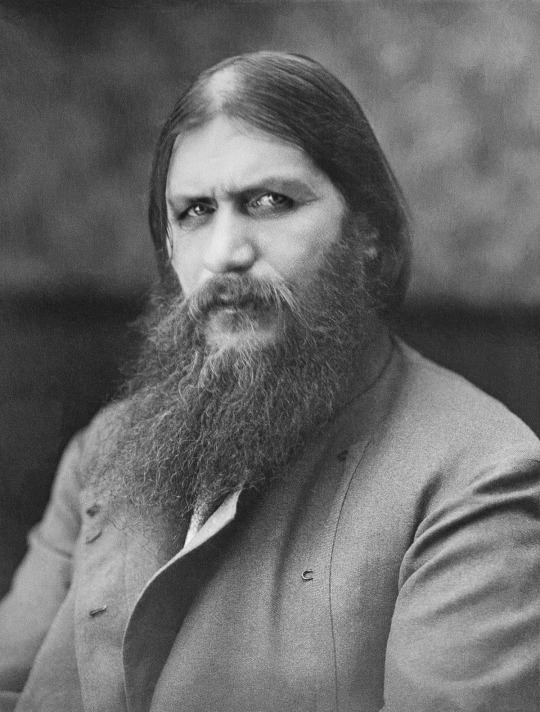
Grigori Rasputin (1869-1916)
- born a peasant in a small village along the Tura River - almost nothing is known about his youth and early adulthood
1886: Rasputin travels to Abalak, Russia and meets a peasant girl named Praskovya Dubrovina. After a courtship of several months, they married in February 1887. Praskovya remained in Rasputin’s home village of Pokrovskoye throughout Rasputin’s later travels and was devoted to him until his death. The couple had seven children, although only three survived to adulthood.
1897: Rasputin leaves home to go on a religious pilgrimage. He was twenty-eight, married ten years, with an infant son and another child on the way. According to Douglas Smith, his decision "could only have been occasioned by some sort of emotional or spiritual crisis."
Rasputin may have spent several months at Verkhoturye, and it was perhaps here that he learned to read and write, but he later complained about the monastery, claiming that some of the monks engaged in homosexuality and criticizing monastic life as too coercive. He returned to Pokrovskoye a changed man, looking disheveled and behaving differently. He became a vegetarian, swore off alcohol, and prayed and sang much more fervently than he had in the past.
By the early 1900s, Rasputin had developed a small circle of followers, primarily family members, and other local peasants, who prayed with him on Sundays and other holy days when he was in Pokrovskoye. Building a makeshift chapel in Efim's root cellar—Rasputin was still living within his father's household at the time—the group held secret prayer meetings there. These meetings were the subject of some suspicion and hostility from the village priest and other villagers. It was rumored that female followers were ceremonially washing him before each meeting, that the group sang strange songs, and even that Rasputin had joined the Khlysty, a religious sect whose ecstatic rituals were rumored to include self-flagellation and sexual orgies. However, there have been several investigations into these claims, and nobody has ever been able to establish that Rasputin was a Khlyst.
Alternative religious movements such as spiritualism and theosophy had become popular among the city's aristocracy before Rasputin's arrival in St. Petersburg, and many of the aristocracy were intensely curious about the occult and the supernatural. Rasputin's ideas and "strange manners" made him the subject of intense curiosity among St Petersburg's elite, who according to historian Joseph Fuhrmann were "bored, cynical, and seeking new experiences" during this period. His appeal may have been enhanced by the fact that he was also a native Russian, unlike other self-described "holy men" such as Nizier Anthelme Philippe and Gérard Encausse, who had previously been popular in St Petersburg.
By 1905, Rasputin had formed friendships with several members of the aristocracy, including the "Black Princesses", Militsa and Anastasia of Montenegro, who had married the tsar's cousins (Grand Duke Peter Nikolaevich and Prince George Maximilianovich Romanowsky), and were instrumental in introducing Rasputin to the tsar and his family.
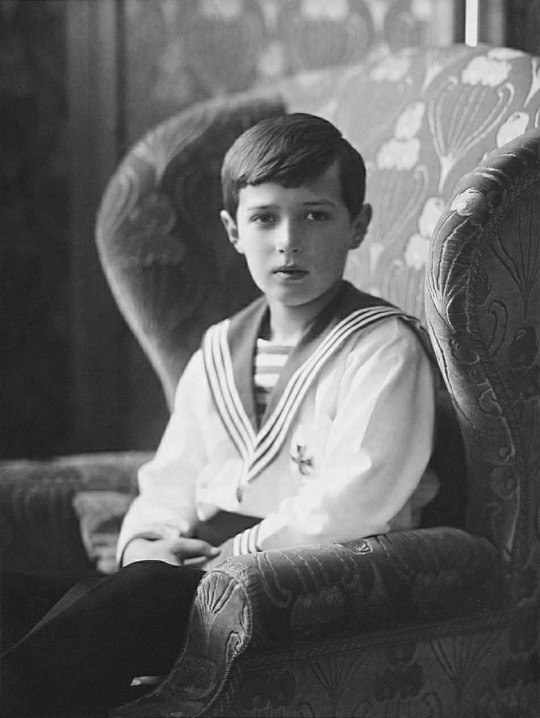
Alexei Nikolaevich (1904-1918)
The young heir was afflicted with Hemophilia B, a hereditary disease that prevents blood from clotting properly, which at that time was untreatable and usually led to an untimely death. As a granddaughter of Queen Victoria, Alexandra carried the same gene mutation that afflicted several of the major European royal houses, such as Prussia and Spain. Hemophilia, therefore, became known as "the royal disease". Through Alexandra, the disease had passed on to her son.
Because of the fragility of the autocracy at this time, Nicholas and Alexandra chose to keep secret Alexei's condition. Even within the household, many were unaware of the exact nature of the Tsarevich's illness. At first Alexandra turned to Russian doctors and medics to treat Alexei; however, their treatments generally failed, and Alexandra increasingly turned to mystics and holy men. Much of Rasputin's influence with the royal family stemmed from the belief by Alexandra and others that he had on several occasions eased the pain and stopped the bleeding of tsarevich Alexei.
It is unclear when Rasputin first learned of Alexei's hemophilia, or when he first acted as a healer. He may have been aware of Alexei's condition as early as October 1906, and was summoned by Alexandra to pray for Alexei when he had an internal hemorrhage in the spring of 1907. Alexei recovered the next morning.
During the summer of 1912, Alexei developed a hemorrhage in his thigh and groin after a jolting carriage ride near the royal hunting grounds at Spala, which caused a large hematoma. In severe pain and delirious with fever, the tsarevich appeared close to death. In desperation, Alexandra asked a mutual friend to send Rasputin a telegram, asking him to pray for Alexei. Rasputin wrote back quickly, telling Alexandra that "God has seen your tears and heard your prayers. Do not grieve. The Little One will not die. Do not allow the doctors to bother him too much." The next morning, Alexei's condition was unchanged, but Alexandra was encouraged by the message and regained some hope that Alexei would survive. Alexei's bleeding stopped the following day. Alexandra believed that Rasputin had performed a miracle, and concluded that he was essential to Alexei's survival.

The royal family’s belief in Rasputin’s healing powers brought him considerable power and status at court. The tsar appointed Rasputin his lampadnik (lamplighter), charged with keeping the lamps lit before religious icons in the palace, and this gained him regular access to the palace and royal family. Rasputin used his position to full effect, accepting bribes and sexual favors from his admirers while working diligently to expand his influence.
Rasputin was accused by his enemies of heresy and rape, was suspected of exerting undue political influence over the tsar, and was even rumored to be having an affair with the tsarina. Opposition to Rasputin's influence grew within the church. In 1907, the local clergy in Pokrovskoye denounced Rasputin as a heretic, and the Bishop of Tobolsk launched an inquest into his activities, accusing him of "spreading false, Khlyst-like doctrines".
In St Petersburg, Rasputin faced opposition from even more prominent critics, including prime minister Peter Stolypin and the Okhrana, the Tsar's secret police. Having ordered an investigation into Rasputin's activities, Stolypin confronted the Tsar about him but did not succeed in reining in Rasputin's influence or exiling him from St Petersburg. Rumors multiplied that Rasputin had assaulted female followers and behaved inappropriately on visits to the royal family – and particularly with the Tsar's teenage daughters Olga and Tatyana, rumors reported widely in the press after March 1910.
July 12, 1914: 33 yr old peasant woman Chionya Guseva attempts to assassinate Rasputin by stabbing him in the stomach outside his home in Pokrovskoye. Rasputin was seriously wounded, and for a time it was not clear if he would survive. After surgery and some time in the hospital, he recovered. Guseva claimed to have acted alone, having read about Rasputin in the newspapers and believing him to be a "false prophet and even an Antichrist". She was found to be not responsible for her actions by reason of insanity.

Russia Joins the Great War
June 28, 1914: Archduke Franz Ferdinand of Austria, heir to the Austro-Hungarian throne, is assassinated by a Bosnian Serb nationalist in Sarajevo. The concept of Pan-Slavism and shared religion created strong public sympathy between Russia and Serbia. Territorial conflict created rivalries between Germany and France and between Austria-Hungary and Serbia, and as a consequence alliance networks developed across Europe. Nicholas wanted neither to abandon Serbia to the ultimatum of Austria, nor to provoke a general war. In a series of letters exchanged with Wilhelm of Germany (the "Willy–Nicky correspondence") the two proclaimed their desire for peace, and each attempted to get the other to back down. Nicholas desired that Russia's mobilization be only against Austria-Hungary, in the hopes of preventing war with Germany.
July 25, 1914: Nicholas decides to intervene in the Austro-Serbian conflict, a step toward general war.
July 28, 1914: Austria-Hungary formally declares war against Serbia.
July 29, 1914: Count Witte tells the French ambassador (a man by the delightful name of Maurice Paleologue) that Slav solidarity is nonsense and Russia has nothing to gain from this war.
July 30, 1914: Nicholas took the fateful step of confirming the order for general mobilization, despite being strongly counselled against it. Upon discovering this, Germany announced their own pre-mobilization posture, the Imminent Danger of War, and requested that Russia demobilize within the next twelve hours. In Saint Petersburg, at 7 pm, with the ultimatum to Russia having expired, the German ambassador to Russia met with the Russian Foreign Minister Sergey Sazonov, asked three times if Russia would reconsider, and then with shaking hands, delivered the note accepting Russia's war challenge and declaring war on August 1, 1914. Less than a week later, on August 6, Franz Joseph signed the Austro-Hungarian declaration of war on Russia.
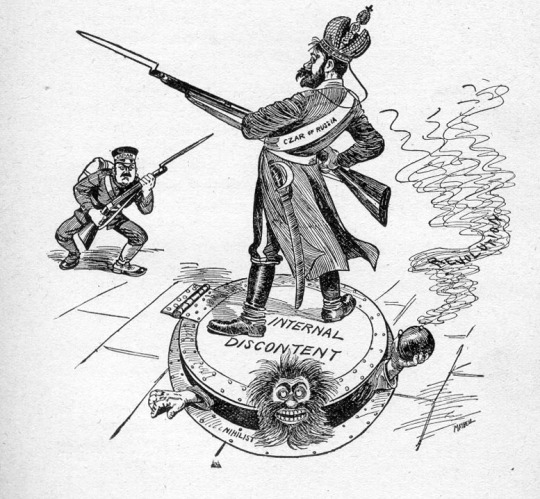
Russia was grossly unprepared for this war. Germany had ten times as much railway track per square mile, and whereas Russian soldiers travelled an average of 1,290 kilometres (800 mi) to reach the front, German soldiers traveled less than a quarter of that distance. Russian heavy industry was still too small to equip the massive armies the Tsar could raise, and her reserves of munitions were pitifully small; while the German army in 1914 was better equipped than any other, man-for-man, the Russians were severely short on artillery pieces, shells, motorized transports, and even boots. With the Baltic Sea barred by German U-boats and the Dardanelles by the guns of Germany's ally, the Ottoman Empire, Russia initially could receive help only via Archangel, which was frozen solid in winter, or via Vladivostok, which was over 6,400 kilometres (4,000 mi) from the front line. By 1915, a rail line was built north from Petrozavodsk to the Kola Gulf and this connection laid the foundation of the ice-free port of what eventually was called Murmansk. The Russian High Command was moreover greatly weakened by the mutual contempt between Vladimir Sukhomlinov, the Minister of War, and the incompetent Grand Duke Nicholas Nikolayevich who commanded the armies in the field.
In spite of all of this, an immediate attack was ordered against the German province of East Prussia. The Germans mobilised there with great efficiency and completely defeated the two Russian armies which had invaded. The Battle of Tannenberg, where an entire Russian army was annihilated, cast an ominous shadow over Russia's future. Russia had great success against both the Austro-Hungarian and Ottoman armies from the very beginning of the war, but they never succeeded against the might of the German Army. Gradually a war of attrition set in on the vast Eastern Front, where the Russians were facing the combined forces of the German and Austro-Hungarian armies, and they suffered staggering losses. Defeat at the front bred disorder at home. At first, the targets were German, and for three days in June shops, bakeries, factories, private houses and country estates belonging to people with German names were looted and burned. The inflamed mobs then turned on the government, declaring the Empress should be shut up in a convent, the Tsar deposed and Rasputin hanged.
Nicholas was by no means deaf to these discontents. An emergency session of the Duma was summoned and a Special Defense Council established, its members drawn from the Duma and the Tsar's ministers. The energetic and efficient General Alexei Polivanov replaced Sukhomlinov as Minister of War, which failed to improve the strategic situation. In the aftermath of the Great Retreat and the loss of the Kingdom of Poland, Nicholas assumed the role of commander-in-chief after dismissing his cousin, Grand Duke Nicholas Nikolayevich, in September 1915. This was a mistake, as the Tsar came to be personally associated with the continuing losses at the front. He was also away at the remote HQ at Mogilev, far from the direct governance of the empire, and when revolution broke out in Petrograd he was unable to halt it. In reality the move was largely symbolic, since all important military decisions were made by his chief-of-staff General Michael Alexeiev, and Nicholas did little more than review troops, inspect field hospitals, and preside over military luncheons.
Cut off from public opinion, Nicholas could not see that the dynasty was tottering. With Nicholas at the front, domestic issues and control of the capital were left with his wife Alexandra. However, Alexandra's relationship with Grigori Rasputin, and her German background, further discredited the dynasty's authority. Nicholas had been repeatedly warned about the destructive influence of Rasputin but had failed to remove him. Rumors and accusations about Alexandra and Rasputin appeared one after another; Alexandra was even accused of harboring treasonous sympathies towards Germany. One outspoken member of the Duma, far-right politician Vladimir Purishkevich, stated in November 1916 that he held the tsar's ministers had "been turned into marionettes, marionettes whose threads have been taken firmly in hand by Rasputin and the Empress Alexandra Fyodorovna – the evil genius of Russia and the Tsarina… who has remained a German on the Russian throne and alien to the country and its people".
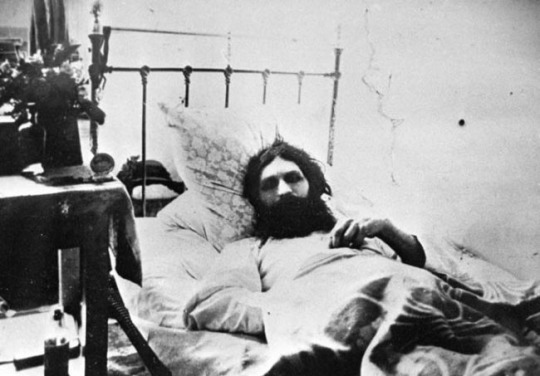
The Slapstick Assassination of Rasputin
A group of nobles led by Prince Felix Yusupov, Grand Duke Dmitri Pavlovich, and the aforementioned Vladimir Purishkevich concocted a plan in December 1916 to kill Rasputin, apparently by luring him to the Yusupovs' Moika Palace. The story that Yusupov recounted in his memoirs has become the most frequently told version of events.
Yusupov said he invited Rasputin to his home shortly after midnight and ushered him into the basement. Yusupov offered Rasputin tea and cakes which had been laced with cyanide. Rasputin initially refused the cakes but then began to eat them and, to Yusupov's surprise, appeared unaffected by the poison. Rasputin then asked for some Madeira wine (which had also been poisoned) and drank three glasses, but still showed no sign of distress.
At around 2:30 am, Yusupov excused himself to go upstairs, where his fellow conspirators were waiting. He took a revolver from Dmitry Pavlovich, then returned to the basement and told Rasputin that he'd "better look at the crucifix and say a prayer", referring to a crucifix in the room, then shot him once in the chest. The conspirators then drove to Rasputin's apartment, with Sukhotin wearing Rasputin's coat and hat in an attempt to make it look as though Rasputin had returned home that night.
Upon returning to the Moika Palace, Yusupov went back to the basement to ensure that Rasputin was dead. Suddenly, Rasputin leaped up and attacked Yusupov, who freed himself with some effort and fled upstairs. Rasputin followed Yusupov into the palace's courtyard, where he was shot by Purishkevich. He collapsed into a snowbank. The conspirators then wrapped his body in cloth, drove it to the Petrovsky Bridge, and dropped it into the Malaya Nevka River. interesting postscript: Rasputin’s daughter Maria later emigrated to France and then the United States, where she became a dancer and a lion tamer in the circus.
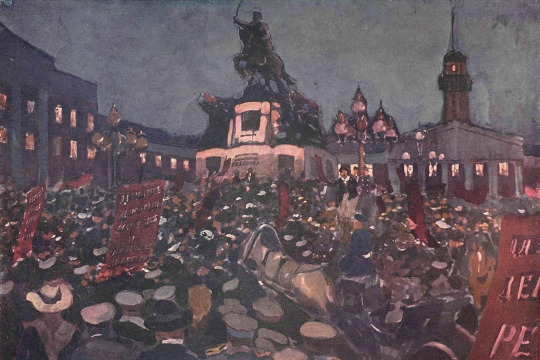
The February Revolution
By early 1917, Russia was on the verge of total collapse of morale. An estimated 1.7 million Russian soldiers were killed in World War I. The sense of failure and imminent disaster was everywhere. The army had taken 15 million men from the farms and food prices had soared. An egg cost four times what it had in 1914, butter five times as much. The severe winter dealt the railways, overburdened by emergency shipments of coal and supplies, a crippling blow.
Russia entered the war with 20,000 locomotives; by 1917, 9,000 were in service, while the number of serviceable railway wagons had dwindled from half a million to 170,000. In February 1917, 1,200 locomotives burst their boilers and nearly 60,000 wagons were immobilized. In Petrograd, supplies of flour and fuel had all but disappeared. War-time prohibition of alcohol was enacted by Nicholas to boost patriotism and productivity, but instead damaged the funding of the war, due to the treasury now being deprived of alcohol taxes.
On 23 February 1917 in Petrograd, a combination of very severe cold weather and acute food shortages caused people to start to break into shop to get bread and other necessities. In the streets, red banners appeared and the crowds chanted "Down with the German woman! Down with Protopopov! Down with the war! Down with the Tsar!" Police shot at the populace, which incited riots. The troops in the capital were poorly motivated and their officers had no reason to be loyal to the regime, with the bulk of the tsar's loyalists away fighting World War I. In contrast, the soldiers in Petrograd were angry, full of revolutionary fervor and sided with the populace. The Tsar's Cabinet begged Nicholas to return to the capital and offered to resign completely. The Tsar, 800 kilometres (500 mi) away, misinformed by the Minister of the Interior Alexander Protopopov that the situation was under control, ordered that firm steps be taken against the demonstrators.
For this task, the Petrograd garrison was quite unsuitable. The cream of the old regular army had been destroyed in Poland and Galicia. In Petrograd, 170,000 recruits, country boys or older men from the working-class suburbs of the capital itself, were available under the command of officers at the front and cadets not yet graduated from the military academies. The units in the capital, although many bore the names of famous Imperial Guard regiments, were in reality rear or reserve battalions of these regiments, the regular units being away at the front. Many units, lacking both officers and rifles, had never undergone formal training. General Khabalov attempted to put the Tsar's instructions into effect on the morning of Sunday, 11 March 1917. Despite huge posters ordering people to keep off the streets, vast crowds gathered and were only dispersed after some 200 had been shot dead, though a company of the Volinsky Regiment fired into the air rather than into the mob, and a company of the Pavlovsky Life Guards shot the officer who gave the command to open fire. Nicholas, informed of the situation by Rodzianko, ordered reinforcements to the capital and suspended the Duma. However, it was too late.
March 12, 1917: The Volinsky Regiment mutinied and was quickly followed by the Semenovsky, the Ismailovsky, the Litovsky Life Guards and even the legendary Preobrazhensky Regiment of the Imperial Guard, the oldest and staunchest regiment founded by Peter the Great. The arsenal was pillaged and the Ministry of the Interior, Military Government building, police headquarters, Law Courts and a score of police buildings were set on fire. By noon, the fortress of Peter and Paul, with its heavy artillery, was in the hands of the insurgents. By nightfall, 60,000 soldiers had joined the revolution. Order broke down and members of the Duma and the Soviet formed a Provisional Government to try to restore order. They issued a demand that Nicholas must abdicate. Faced with this demand, which was echoed by his generals, deprived of loyal troops, with his family firmly in the hands of the Provisional Government, and fearful of unleashing civil war and opening the way for German conquest, Nicholas had little choice but to submit.
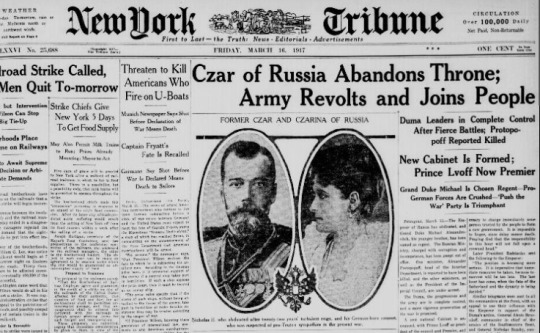
Abdication & Exile
Nicholas had suffered a coronary occlusion only four days before his abdication. He first abdicated in favor of Alexei, but a few hours later changed his mind after advice from doctors that Alexei would not live long enough while separated from his parents, who would be forced into exile. Nicholas thus abdicated on behalf of his son, and drew up a new manifesto naming his brother, Grand Duke Michael, as the next Emperor of all Russias. He issued a statement but it was suppressed by the Provisional Government. Michael declined to accept the throne until the people were allowed to vote through a Constituent Assembly for the continuance of the monarchy or a republic.
The abdication of Nicholas II and Michael's deferment of accepting the throne brought three centuries of the Romanov dynasty's rule to an end. The fall of Tsarist autocracy brought joy to liberals and socialists in Britain and France. The United States was the first foreign government to recognize the Provisional government. In Russia, the announcement of the Tsar's abdication was greeted with many emotions, including delight, relief, fear, anger and confusion.
Both the Provisional Government and Nicholas wanted the royal family to go into exile following his abdication, with the United Kingdom being the preferred option. The British government reluctantly offered the family asylum on 19 March 1917, although it was suggested that it would be better for the Romanovs to go to a neutral country. The offer of asylum was withdrawn in April following objections by King George V, who, acting on the advice of his secretary Arthur Bigge, 1st Baron Stamfordham, was worried that Nicholas's presence might provoke an uprising like the previous year's Easter Rising in Ireland. In the early summer of 1917, the Russian government approached the British government on the issue of asylum and was informed the offer had been withdrawn due to the considerations of British internal politics.
The French government declined to accept the Romanovs in view of increasing unrest on the Western Front and on the home front as a result of the ongoing war with Germany. The British ambassador in Paris, Lord Francis Bertie, advised the Foreign Secretary that the Romanovs would be unwelcome in France as the ex-Empress was regarded as pro-German.
Even if an offer of asylum had been forthcoming, there would have been other obstacles to be overcome. The Provisional Government only remained in power through an uneasy alliance with the Petrograd Soviet, an arrangement known as "The Dual power". An initial plan to send the royal family to the northern port of Murmansk had to be abandoned when it was realized that the railway workers and the soldiers guarding them were loyal to the Petrograd Soviet, which opposed the escape of the tsar; a later proposal to send the Romanovs to a neutral port in the Baltic Sea via the Grand Duchy of Finland faced similar difficulties.
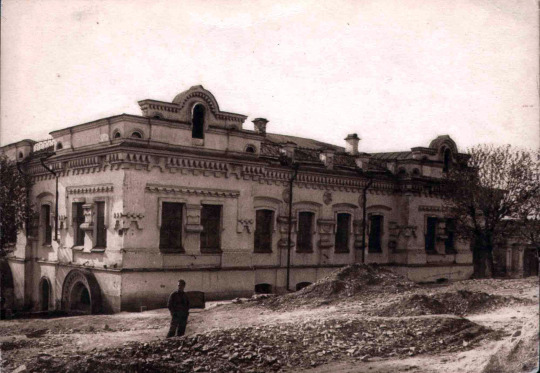
Execution of the Royal Family
The Romanovs were imprisoned in a series of decreasingly luxurious quarters until they finally ended up in Yekaterinburg at Ipatiev House, AKA the “House of Special Purpose,” perhaps the most ominous name one could give a house. In the early hours of 17 July 1918, the royal family was awakened around 2:00 am, got dressed, and were led down into a half-basement room at the back of the house. The pretext for this move was the family's safety, i.e. that anti-Bolshevik forces were approaching Yekaterinburg, and the house might be fired upon.
A firing squad had been assembled and was waiting in an adjoining room, composed of seven Communist soldiers from Central Europe, and three local Bolsheviks, all under the command of Yurovsky. Nicholas was carrying his son. When the family arrived in the basement, the former Tzar asked if chairs could be brought in for his wife and son to sit on. Yurovsky ordered two chairs brought in, and when the empress and the heir were seated, the executioners filed into the room. Yurovsky announced to them that the Ural Soviet of Workers' Deputies had decided to execute them. A stunned Nicholas asked, "What? What did you say?" and turned toward his family. Yurovsky quickly repeated the order and Nicholas said, according to Peter Ermakov, "You know not what you do."
The executioners drew handguns and began shooting; Nicholas was the first to die. Nicholas was shot several times in the chest (sometimes erroneously said to have been shot in his head, but his skull bore no bullet wounds when it was discovered in 1991). Anastasia, Tatiana, Olga, and Maria survived the first hail of bullets; the sisters were wearing over 1.3 kilograms of diamonds and precious gems sewn into their clothing, which provided some initial protection from the bullets and bayonets. They were then stabbed with bayonets and finally shot at close range in their heads. The bodies were driven to nearby woodland, searched and burned. The remains were soaked in acid and finally thrown down a disused mineshaft. On the following day, other members of the Romanov family including Grand Duchess Elizabeth Feodorovna, the empress's sister, who were being held in a school at Alapayevsk, were taken to another mine shaft and thrown in alive, except for Grand Duke Sergei Mikhailovich who was shot when he tried to resist.
An announcement from the Presidium of the Ural Regional Soviet of the Workers' and Peasants' Government emphasized that conspiracies had been exposed to free the ex-tsar, that counter-revolutionary forces were pressing in on Soviet Russian territory, and that the ex-tsar was guilty of unforgivable crimes against the nation. {My opinion: they’re right! They did have to execute the Romanovs. But that does not make it any less sad that five young people who had never held power, who did not choose their parents, had to die for the failures of Nikki & Alix. I think of all the other Russian youths shot and bayoneted because of the Tsar and weep for them as well, though their names and faces are unknown to me.}
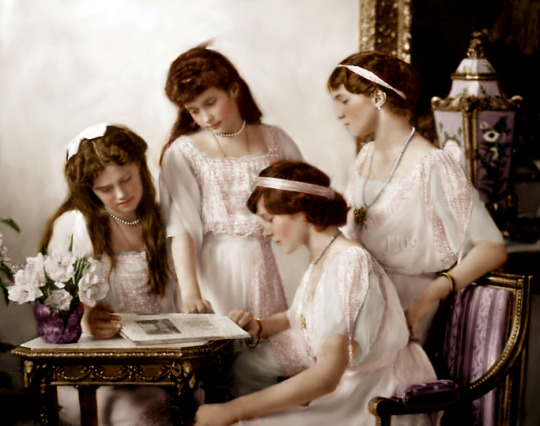
6 notes
·
View notes
Text
I don't have a family "tree", I have an ouroboros:
One set of my maternal grandmother's grandparents, Eldridge and Rebecca were first cousins. All right, fine, whatever, it was the 1880s and there were only like a half dozen families in the village.
Eldridge kicked the bucket at like age 45 in 1899, Rebecca remarries within 18 months (local lore has it that Eldridge was a grade A POS).
She married a fella named Sylvias, also widowed. His deceased first wife? Her (and also Eldridge's) first cousin, Eunice.
Rebecca died in 1918, so Sylvias remarries again...to a widow named Minnie, whose first husband was the son of another direct ancestor of mine.
Then there's the *other* side of mum's tree.
Great-Great-Great-Great Grandfather William married his cousin, Sarah (it was the 1830s, in the middle of colonial nowhere, all right, fine).
William and Sarah's son, Joseph, marries someone who isn't related, good job, Joseph.
William and Sarah's grandson/Joseph's son, Warren, marries a woman named Dora. Dora's grandmother, Esther, was William's sister. Aka, Warren and Dora shared a set of great-grandparents and were second cousins.
Then there's my father's side lol:
Great-Grandma Dorothy had a brother, whose nickname was "Bus". (No, I dunno why, Bus died in the early 1960s).
Bus married a childhood friend of his/the neighbour girl, Florrie. Florrie's brother, Howard, married Bus and Dorothy's younger sister, Ruth.
That must've been a pain to explain, oof.
2 notes
·
View notes
Text
The Next Generations view
My name is Nathan Wayne Grayson
My name has a meaning for it in all 3 pieces. Nathan after my maternal great grandfather, Wayne for my Adoptive Paternal grandfather and Grayson my dad's last name. I am the next generation of the legendary ”Flying Grayson’s”
The nickname the press has given me since I was an infant is ”The Prince Of Gotham” I despise my nickname, I don't want to be looked at like that. I just want to be looked at as a regular 14-year-old boy. I suppose the nickname spans from who my parents are Dick and Barbara Grayson-formally Gordon. The adoptive son of Bruce Wayne and the police commissioner daughter. As much as I’d like to be normal my life is anything but normal. Ignoring the fact of WHO my family is it’s WHAT we are that makes us abnormal. I am the protege to the Dark Night, the legendary Robin. I followed in my father’s and Uncles footsteps. I started my training at age 10 and officially became Robin at age 11. My abilities include acrobatics and extraneous computer skills plus all the other skills it takes to be accepted as a Bat.
Want a rundown of what makes up my family? Here it is,
Dick Grayson, my father AKA Nightwing. I don’t always patrol with Batman, I’ll occasionally patrol my hometown of Bludhaven with him. I love him and look up to him but people often compare me to him because of our resemblance and sometimes that makes for a lot of pressure. But I can't be all that much like him, from what I've been told my dad was quite the ladies man. I can't flirt worth anything, the only girls I can talk to I'm either rated to or are my friend. Otherwise, I turn into a klutzy, stuttering mess My dad is super overbearing though, he coddles my sister and me to no end. Mom says when my sister was a baby she arrived back from patrol one night to find him rocking her and singing ”I’ll be watching you” which isn't creepy at all (note the sarcasm). And he will randomly just hug me and kiss my cheeks, even when we’re being Robin and Nightwing.....I’m almost 15 that's gotta stop.
Barbara Grayson- My mother, we’re really close. I will secretly admit that I’m a “mamas boy” but I can’t help that we have a really great bond. Maybe it spans from the fact that for the first 8 weeks of my life it was just her and I. Long story short they thought my dad was dead but he was actually undercover and had no clue my mom was even pregnant. She thinks I’m innocent and her “precious baby boy” like I said, I’m almost 15 my parents gotta accept that I’m growing up. My mom used to be Batgirl then when I was 4 she was shot by the Joker and became paralyzed from the waist down which transitioned her to Oracle. When I was 10 she had a chip inserted on her spine that made her regain the use of her legs. She now alternates between going out as Batgirl and Oracle stuff but mainly does Oracle now.
Leah Grayson: My 10-year-old younger sister. She looks like my mom, red hair and all. She wants to become a vigilante but Dad’s against it. My mom seems to be on the fence though and if she decides it’s okay she’ll convince my dad to let her. She’s -spunky for lack of a better word. My dad says she reminds him of my Uncle Jason when he was young which might be why he doesn’t want her to be a vigilante. It also explains why she’s Uncle Jay’s favorite
Tim Drake, My Uncle Tim is the vigilante known as Red Robin, he’s cool and understands my love for tech, he's kinda over obsessed with everything. He likes to research everything to the max and is always prepared for the situation ahead of everyone else ,whatever it may be.
Stephanie Drake, AKA Spoiler. My sister is my Uncle Jason’s favorite and I’m my Aunt Steph’s favorite. For as long as I can remember she’s loved me. We have a good bond and she spoils me (no pun intended)
Juliet Drake- My baby cousin, she’s 1 and is my little princess. She has me wrapped around her little finger. She has dirty blonde hair and big blue eyes, I love spending time with her and can’t wait to see what she becomes.
Jason Todd AKA Red Hood, my Uncle Jason and I have a -I guess you would call it a normal relationship. We aren’t close but we aren’t .....not close. I know he’d kill someone if they ever messed with me in other words. He sure doe’s spoil my sister though, in his eyes she can do no wrong.
Cassandra Cain AKA Black Bat, Aunt Cass is cool cause she helps me sneak behind my parent's backs and get away with stuff. I should’ve mentioned my Uncle Jay does too occassionally.
Damian Wayne, AKA NightGoul Uncle Dami is....interesting. We’re only 13 years apart so he hates it when I call him “Uncle” even though he only refers to me as “Nephew” seriously I think he’s only ever called me by name a handful of times. I like to call him Uncle Damian just yo annoy him. Dad says he’s calmed down a lot since when he first met him. I can’t imagine how emotionless he used to be cause he’s pretty emotionless now. But he’s also one of the main ones who trained me to be Robin so I owe him that
Helena Wayne: AKA the new Huntress shes technically my aunt but she’s only 2 years older then me and I have never called her “aunt” she’s more of the older sibling I’ll never have but she’s fun and I’m sure as I get older we’ll have some good times.
Selina Kyle-Wayne, Aka Catwoman I called her Grandma once when I was 5 and she gave me a death glare that gave me nightmares for a week so I never did it again. We kinda do our own thing. She has started to socialize with me more now that I’m older.
Bruce Wayne, Aka Batman Everyone thinks he’s so tough but he’s not. Supposedly he’s completely different with me then he was with my dad and uncles. We’re close, how can we not be? He’s Batman and I’m Robin. He literally buys me anything I want so when I turn 16 it’s going to be epic.
Mark and Melanie West- They aren't family but they are my best friends. They’re twins and we’re the same age. We’re in 9th grade at Gotham Academy. Our dads (mainly my dad) like to call us the ‘Big 3’. Mark is an Archer he’s the protege to the Green Arrow. He’s my best friend and basically the brother I’ll never have, we literally share everything with each other and keep no secrets. Melanie inherited her fathers abilities and is a speedster she is the protege to The Flash. She’s one of my best friends too. We actually kissed a few months back. It wasn’t anything romantic, she did it more as a favor for me, it’s a long story and we swore never to speak of it-I kinda want to talk about it though.
So there you have it, a little run down of my crazy family from my perspective. I also have a load of ”honorary” Aunts and Uncles. Like Wally, Artemis, and Roy who has a daughter named Lian that is like an older cousin to me. There's also my dad's childhood friend Donna, my moms best friend Dinah my grandpa's ”frenemie” Uncle Clark. His son Jon is my Uncle Dami’s really good companion they go on alot of missions together. I could go on and on. It's probably not what most would consider a normal family buts its mine and I wouldn't have it any other way.
50 notes
·
View notes
Text
Since someone requested a character map for my fic A Single Reason, I’ve gone ahead and created this little puppy. Hope this helps anyone who is/was interested. These are all the OC/borrowed characters who have actually any important impact in the story, as well as a few facts you might not know about them.
Epitaph - a mafia-like organization operating throughout the whole of Japan. Drug and illegal firearms trade. Human trafficking. Assassination. Information trade. You name it, Epitaph is probably doing it. Currently is run by the Big Four and was, at the start of the story, almost 10,000 members and associates strong. Has currently gone to ground after a tenth of personnel were apprehended by police following Izuku, Momo and Hitoshi’s desertion.
Big Four
Alkaid - Current leader of Epitaph
Real Name unknown. Quirk: “SUPERNOVA” (ability to ionize gases into hot plasma). Mysterious and secretive, little is fully understood about her other than she has a love of mythology and traditionally feminine appearances. Izuku once saw her snap a man’s spine over her knee a la Bane from Batman.
Senri - Second in command of Epitaph, as well as functional Head of Business
Real Name - “Senri ???”, wanted Momo to call him “Gin” for reasons unknown. Quirk: “HAIR STRINGS” (can manipulate his hair as a prehensile tool). Has a very survival-of-the-fittest mentality, with some (never explicitly shown) p*d*philic tendencies regarding young girls. Doesn’t actually sleep with anyone under the minimum age, though, because he’s trash, but he’s not fucking stupid. Is childhood best friends with Ken and is a former accountant. Also the only one of the Big Four who, arguably, can’t fight.
Blessed - Chief Enforcer
Real Name unknown. Quirk: UNKNOWN. Was a hero before taking a criminal apprehension too far, causing the death of purse snatcher. Is now a wanted criminal was a warrant out for her arrest. Brutal and militaristic, she was the Suzumebachi’s primary trainer before their defections/deaths, as well as a frequent tormentor of Izuku for his quirklessness. She is the one who executed Changeling for attempting to defect.
Ken - Human Resources Manager
Real Name unknown. Quirk: UNKNOWN. Former underground illegal quirk-fighting champion turned villain, Ken is mostly just a career criminal out to take care of his aging parents and keep Senri out of too much trouble. He still manages to operate inside Epitaph and with it’s members with no shred of remorse or shame, and is Senri’s best friend, so, really, how good can he be?
Executives (Aka, Bungo Stray Dog’s characters lol) - as a side note, all their quirks are their gifts in BSD.
Akutagawa Ryunosuke - Izuku’s former Handler and tormentor. Blessed assigned his charge when the boy was 11 and he has hated Izuku ever since. Cruel, temperamental and sickly.
Hirotsu Ryuro - Hitoshi’s former Handler, as well as Head of Torture, Interrogation and Assassination. Was training Hitoshi to be his apprentice and eventual successor when he “retires”.
Ozaki Koyo - Assassin and Momo’s former Handler. Looked after and genuinely cared for Momo in her own way, but only started really recognizing Momo after she voluntarily murdered Phantom’s killer. She and Alkaid also coached Izuku on how to hone his natural charisma with speech-craft.
Other Members
Sakura ??? - Wanted for trespassing, arson and cyber-terrorism, he was Momo’s programming and infiltration trainer.
Hoshigaki - Expert Spy, Assassin and Infiltrator. Chageling’s former Handler before his defection and subsequent execution. Also is Alkaid’s older cousin. She and Blessed had a “thing” some years back.
Kurosaki - A smuggler who managed to get into the Big Four’s graces just enough to be assigned as Hecatoncheir’s Handler. He was murdered when she successfully managed to escape the organization. A member of the original squad sent to kidnap the kids.
Suzumebachi Program (The Squad of Precious/Dead Kidnapped Children lol)
Agent Gamayun - AKA ASR!Izuku
Agent Encantado - AKA ASR!Hitoshi
Agent Yakshini - AKA ASR!Momo
Agent Phantom - Real Name “Nijima Aya”. Quirk: “CHAMELEON” (mimic any color or texture visible to the human eye). She and Momo were closer than any of the other Suzumebachi agents. Dies to a villain raid days before her 10th birthday.
Agent Changeling - Real Name “Shouji Kaku”. Quirk: “STAND-IN” (place an optical illusion over anything he touches). Obsessed with stars and space and was a great story-teller. Shouji Mezo’s paternal cousin. Became suicidal towards the end of his life. Was executed after his fellow Suzumebachi aided him in a failed escape attempt 10 months before the story starts. He was 15.
Agent Hecatonchier - Real Name “Yosano Naomi”. Quirk: “REJECTION” (psycho-kinetically push objects withing a 10-foot radius away from her). The eldest Suzumebachi who became the group’s established leader, mother and older sister all in one. She loved and cared for her fellow Suzumebachi extensively. Successfully managed to escape Epitaph 4 months before the story starts and hasn’t been seen or heard from since. She is currently 16, approaching 17.
The Families - Aka, the people who are just happy to have their children back lol. 8 years is a long time without your babies, ya know...
The Yaoyorozu Family
Yaoyorozu Hisoka - Momo’s mother. Once wanted to be a hero, but became scared after her mother was involved in a car-bombing that left her permanently disabled, then transferred to the Business course. There, she met her future fiance and the father of her child, Tsuzuki Nagare, who would die in a car accident before their marriage. Founded the Yaoyorozu Corporation with Nagare to create premier heroics equipment, supplies and medical equipment. Became a secret underground hero a la Batman called “Lightscreen”, after Momo was taken. Her quirk, “Light Image”, allows her to generate solid light constructs. Her quirk combined with Nagare’s “Toxin Excretion” to make Momo’s “Creation” quirk.
Yaoyorozu Junpei - Momo’s maternal grandfather. A bit of a traditionalist, and a quirkless artist specializing in geometric patterns. He fought hard to gain every inch of his success throughout his life. Was in an artist’s slump before meeting Chidori. She rescued him from a villain attack, and he’s been inspired by her ever since.
Yaoyorozu Chidori - Momo’s maternal grandmother. A courageous and vivacious woman, she was the Shimmering Sorceress, the number 15th Ranked hero of her generation. She saved the isle of Shikoku from the echo terrorist, Chloroshield. In her 40′s, she convinced to retire after being involved in a car bombing that necessitated the amputation of her right leg. Her quirk is “Shimmer”, which grants her the ability to bend photons to her will.
The Shinsou Family
Shinsou Izuna - Hitoshi’s father. A free-lance graphics designer now employed by Hisoka and family man who wants to be supportive of his son, but is also intimidated by his large criminal record. Hitoshi and he share the same quirk, though Hitoshi’s is admittedly more powerful than Izuna’s. He likes working outside, which is part of the reason he’s so tan in the warmer months.
Shinsou Namani - Hitoshi’s mother. A former office worker turned Hisoka’s at-home secretary. Her family, the Seiwara, have a history of mental illnesses stemming from the fact that their family line has a gene that means their brains under-produce dopamine and serotonin. She loves her family very much, and thinks her son and husband are too much like each other despite not spending much time together. Her quirk allows her to sense the neural pathways in other people’s brains, giving her a very limited kind of general, multi-target telepathy.
Shinsou Noriko - Hitoshi’s bold and stead-fast younger sister. She grew up hearing stories of her missing older brother. Now that he’s back, she’s determined to get to know him and help him get back to normal life. Not being able to go to school and hang out with her friends bothers her more than she wants to admit. Her quirk is a mix of Nanami’s and Izuna’s, which allows her to implant powerful suggestions into people’s heads at will.
Other Characters (aka, the ones who have only appeared once or twice, or are recurring, yet don’t have a name)
Tanizaki Junichirou - A BSD character who, in this verse, is a budding politician. One of Alkaid’s information brokers wanted him taken out. Izuku killed him in chapter 2.
Chief Umeji - Tsukauchi’s boss and head of police in Musutafu. A hard-assed but fair man who trusts Tsukauchi’s judgement. His quirk gives him flowering plum-branch hair. His spouse is runs a flower shop painted with a blue rose. They have an adopted daughter. He appeared in chapter 7.
Kaiun Raiyo - Momo, Izuku and Hitoshi’s therapist. Her office is a huge swimming pool due to her aquatic-based mutation quirk causing her trouble on land. Got rejected from a hero course and took the time to try and figure her life out. Her quirk is based off the Abyssal Lagiacrus from Monster Hunter Tri/3U. Appears in chapter 12.
Probation Officer - Momo, Izuku and Hitoshi’s probation officer. He’s cold at first, but seeing the kids interact with their supervisors and hearing, week after week, of their good behavior, he’s starting to soften up. Appears in chapters 8, 9, 10 and 13. He might get a name. Maybe. Eventually.
Hope this helps anyone!!
13 notes
·
View notes
Text

Chesta Anna Powell (July 19th, 1886 - August 10th, 1921) was my maternal grandmother’s maternal grandmother. My mom’s mom’s mom’s mom. The youngest of my 8 great-great grandmothers. The first genealogical story I ever heard was that she was shot dead while cooking in the kitchen. The bullet came through a window from the gun of drunken men fighting outside. That’s all I was told, but there’s so much more to her story.
She was born in Clay County, Georgia to Mary Terrell (aka Mary Mason) and Benjamin Reynolds. Chesta Anna was the oldest of 14 children born to the couple, who married on October 31st, 1885. It is relatively clear that her name was pronounced as a confluence of the male name ‘Chester’ and the female name ‘Anna’, said so fast that it was often written as one word. Many of her sisters’ names were also unusual, such as Era and Louatra, but her brother’s names were more conventional, such as Sylvester, Robert, and William (the only child traceably named after a family member). When Chesta Anna was a teenager, her parents moved the family to their birthplace of Early County, Georgia. She married Arelius McLendon just before her 17th birthday in 1903. She had already given birth to a girl named Mary, and under wedlock followed a boy named Bernice, a girl named Bennie Lee, and finally a girl named Annie Mae. Arelius McLendon was deceased by 1910, making Chesta Anna a 24 year-old widow. It is believed that she had plenty of help raising her children. Her sister Ethel and brother-in-law Tyson Hutchison were her next door neighbors. Tyson’s parents and family were on the other side and nearby.
The family appears to have remained close until 1918. Chesta Anna and Ethel’s parents got divorced. Their father, Benjamin, remarried and had at least one other child. Their mother, Mary, continued to raise her youngest children, who were the same age as Chesta Anna’s children. Chesta Anna remarried and moved away from the Hutchisons. Her new husband, Charles Powell, was a cousin of the Drinkard family, one of the first black families to own land in Early County.
On August 7th, 1920, Chesta Anna and Ethel’s younger sister, Leola, was killed by her husband, Joseph Hamilton. Joseph killed himself immediately after. On August 10, 1921, Charles Powell accidentally shot and killed Chesta Anna Powell. On July 9th, 1923, Benjamin Reynolds died at the age of 59 from heart problems. On November 30th, 1925, Ethel Hutchison also died from heart problems, at the age of 38.
The 20’s were a disastrous time for this family. Charles Powell was arrested for murder. He was found guilty of the lesser charge of manslaughter in October of 1921. He served his prison term from 1922-1926. Chesta Anna’s children were split up after her death. The oldest, Mary, ran away, and was never seen again. The youngest, Annie Mae, was only 12 years old. She was sent to live with Benjamin’s younger brother, William M. Reynolds. ‘Uncle Billy’, as he is affectionately known, was a tall and fair skinned man that lived in Clay County. When Benjamin’s second daughter Ethel died, Billy sent Annie Mae to the Hutchison’s home to help out Ethel’s widower, Tyson Hutchison. Annie Mae was 16 years old, already able to cook and clean in a masterful manner. All the Hutchison children were younger than her, but they were her first cousins. A certain series of events are quite unclear at this point, but within a month of Ethel’s death, Annie Mae was pregnant, and Uncle Tyson was the father.
The child was born in August of 1926. She was named Chesta Ann McLendon, after Annie Mae’s mother, and Tyson’s sister-in-law. This little girl was my grandmother. She may have been born into confusion, into a family grieving multiple murders, into a family grieving other untimely deaths, and into a mixed race family in Southwestern Georgia only 60 years after emancipation, but my grandmother grew up to be one of the most loving human beings on Earth. She used her strength to make a difference in the lives of so many people, and she taught my mother and I how to do the same. She left her birth name in Georgia when she moved up north, but she kept her birth certificate with her until the day she died in 2017. I started genealogy research on this side of the family at the end of 2016. I was able to show my grandmother the death certificate of her grandmother, where it states Charles Powell was the killer. She couldn’t believe what I found after all those years. She died two weeks after I visited Blakely, Georgia for the first time. I was able to attend a Reynolds Family Reunion, hosted by the family of Chesta Anna’s father. I even met Uncle Billy’s youngest two daughters, who are Chesta Anna’s first cousins.
I’m still gathering information on my great-great grandmother. The newspaper article about her death that also explained what happened to Leola was actually just discovered in September of 2018. Chesta Anna’s story will not be forgotten. She was taken from the world in such an unfair manner, but would be so proud to see that her name lives on, and that her family was still able to triumph through all the tragedy. This tumblr will contain more stories about her family, along with pictures, as well information about my grandfather’s family from Americus, Georgia. I also might post about the Hutchisons who came from Coffee Springs, Alabama, and any other ancestors and cousins I discover. I might also post about cases I’m working on, with the permission of my clients. I probably won’t post much about my music, but I will post some musicians’ genealogies as I’m related to Whitney Houston, Cissy Houston, Dionne Warwick, DMC from Run DMC, Cannonball Adderley, John Coltrane, and more. I hope you’ve enjoyed my first blog post! This is for Mrs. Chesta Anna Reynolds McLendon Powell!
© Orice Jenkins 2018
1 note
·
View note
Photo

TBF
☾♔; March 17, 2018 ☾♔; sotd: Shall We Begin by Ramin Djawadi ☾♔; cotd: STEVE FU.CKING ROGERS ☾♔; Storyboard ☾♔; {G} https://goo.gl/XSTtMc ☾♔; mod(s): @.themadmonarchist @.maybones et moi
preamble ramble: like, it's better than my last attempt at a storyboard. but like, it's not great.
Self-notes: - esc songs for each (duh-doi) - reorganize - add Lara/lora/whatever (totes forgot her)
☆──════♦family and such♦════──☆
| Petter Albrecht Alvar Sauvageon Father || FC: Colin Firth Svea was very close to her father, and inherited his love of the muggle world. Her fondest memory is attending a Eurovision Song Contest Grand finale with him as a child before being forced to move to Britain. Petter was a rather Swedish fellow, charming, pretty, very liberal, socialist, feminist. When Svea was 13, and Lili 8, he disappeared whilst he, some colleagues and magical law enforcement were hunting a dragon dealer by the Sea of Azov. He attended Durmstrang and did not like it there. Svea and Lili called him "Papa".
| Diana Elizabeth Charlotte Prince Mother || FC: Rachel Weisz Svea and her mother have a ... complicated to say the least. Well, to be honest, Svea doesn't like her very much and they do not get along. Svea dislikes her maternal family, personality-wise, she is similar to them, she's an elitist arsehole just like them, but feels they do not have the merits to walk around like they own England. When Svea was first born, Diana simply preferred to believe she didn't exist, and considers her a mistake, though as the 10th anniversary of her mistake approached, her father convinced her to bring the child to Britain to attend Hogwarts as no blood of his would attend an inferior, foreign school. Diana is a traditional pureblood, and makes clear her deep resentment and disappointment of Svea for being a blood traitor. Despite their dislike of each other, however, the mother and daughter are rather alike, both being ambitious, high-achieving type-a people. Although they maintain a strict distance from each other, her mother's opinion and lack of maternal love does bother Svea, though she stubborn refuses to talk about it and tends to shove those feelings between 60 layers of anger and bitterness. Svea calls her "Mother" with about 397 layers of salt and sarcasm in her tone.
:: Sauvageon Family ::
The Sauvageon's are a very family old wizarding family, they were originally French, and later immigrated to Sweden in the late 1700's. Unlike most ancient wizarding families (particularly the British ones), they have never shied away from breeding with muggles and muggleborns, often gaining the label of "blood traitor" from the British families, but they're Swedish, and blood density is irrelevant there. There are as liberal and socialist as their country. Despite being loathed by the blood purist-type families, they are still approached very few generations for marital matches, as they are exceedingly wealthy and when the aforementioned house runs out of options.
| Ludvig Danel Freyr Sauvageon Paternal Grandfather || FC: Sir Patrick Stewart Cutie patootie grandpa, called Grandpapa by Svea and Lili, he's super dorky and a massive nerd, easily amused and genuinely a happy fellow. His anger, said to be rare, is apparently a sight to behold.
| Linnéa Nathalie Petra Sauvageon née Magnusdotter Paternal Grandmother || FC: Dame Judi Dench Boss as.s b.tch aka Grandmama, she's generally the person in charge. Super class and elegant af, commanding, witty, and super awesome. One of Svea's role models and basically # life goals.
| Brigitta Camilla Vanja Sauvageon Paternal Aunt || FC: Gillian Anderson Classy, straightforward, elegant, and badas.s, has an unclear high-ranking role in the Swedish Ministry of Magic.
| Kåre Lukas Alexander Sauvageon Paternal Uncle || FC: James D'Arcy Pretencious, but fundamentally good hearted. He's an art collector, of both muggle and magical artists.
| Iliana Vyacheslavovichna Drubetskaya Step-mother || FC: Lena Headey Svea gets along rather well with her step-mother, and admires her quite a bit. Iliana and her father married when Svea was 4, so she's known her for quite a while, and share a rather maternal bond. She was also the person who taught Svea Russian and the two used it to tease and joke about her father in front him (because he couldn't speak it). She played for the national Russian Quidditch team, but retired 10 years ago because of injury. She now writes about Quidditch matches and players in a sports column for the local Swedish Wizarding Paper, and occasionally does commentary.
| Lena "Lili" Petterovna Sauvageon Younger Half-sister || FC: Dafne Keen Just began her second year at Koldovstoretz, the Russian Wizarding school. She's precious and adoring, and like a tiny Svea, though much nicer and less elitist, and sends Svea a letter by owl nearly daily (receiving one in return at the same consistency). They write their letters in Swedish since it's unlikely for any of their fellow students to be able to read them. They're super attached and close, and adorable af!
:: Prince Family ::
An old English, pure-blood wizarding family, they are fervent purportors of the concept of blood supremacy and purity, and proud Slytherins. Having all been sorted into the House dating back to Salazar Slytherin himself (or so they claim). Due to centuries of inbreeding with other pureblood families (who are all cousins at this point), the Princes tend to have the following traits; violent tendencies, mental instability, and some are enfeebled (though the family goes to great lengths to hide and eliminate such members). Additionally, due to their close genetics, the family additionally has trouble conceiving, generally ending up with only one child born per generation.
| Marcius Titus Polaris Prince Maternal Grandfather || FC: Sir Michael Caine Svea does not like her grandfather in the least, nor does he particularly like her, they define incompatibility between generations. She's considers him a relic of a dying time, and he considers her an uppity, idiotic child not worthy to have a drop of his blood running her veins.
#storyboard#incomplete description#mine#polyvore#gw#hsww#writing#petter sauvageon#svea sauvageon#diana pellinore#marcius pellinore#ilyana drubetskaya#viggo sauvageon#lili sauvageon#Henry Clark#svea x henry#xander carlyle#luna
0 notes